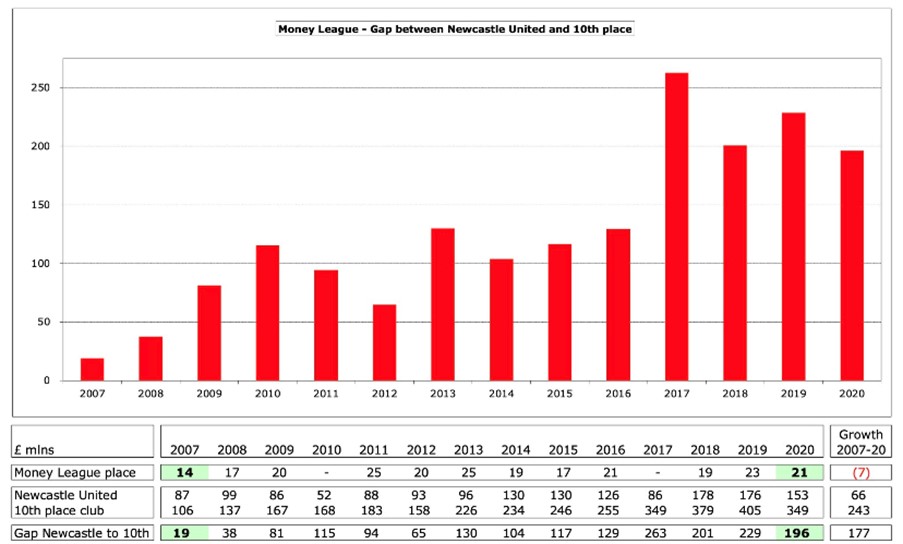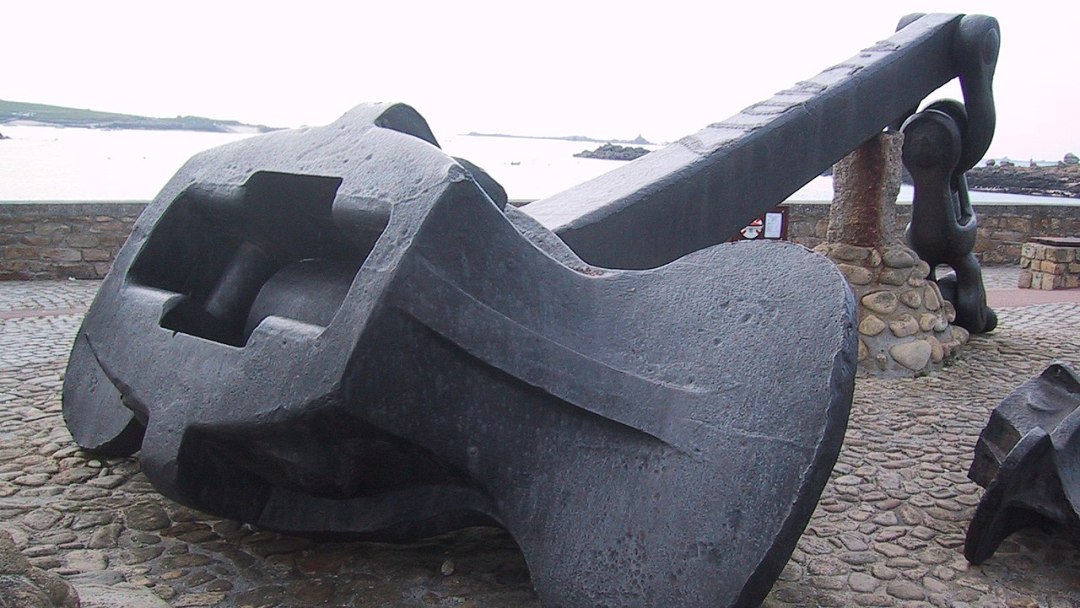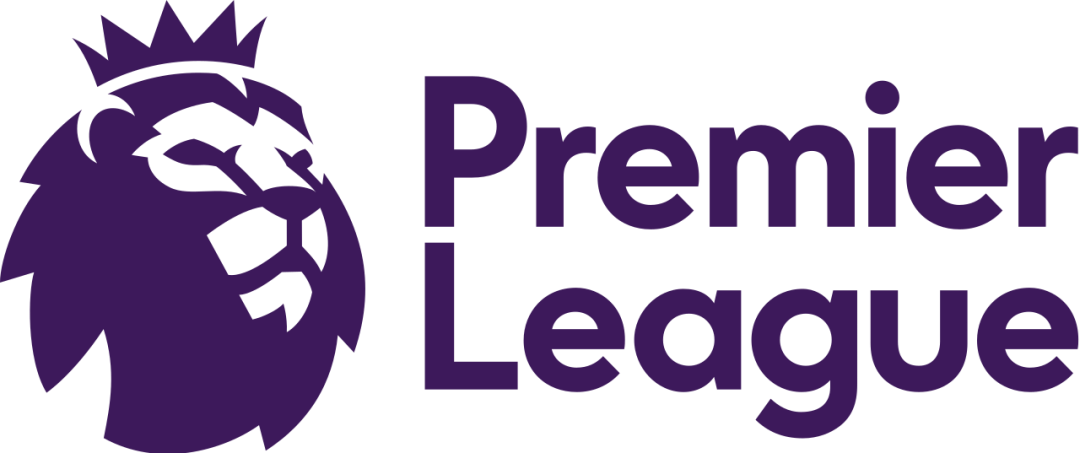Newcastle United in September 2004 was a very different beast to the Newcastle United of September 2021. They were owned by the Hall and Shepherd families, local businessmen who had dragged Newcastle from the depths of the second flight to the heights of the Champions League.
They’d bought the club outright in 1991. In the 13 years from 1991-2004, we finished in the top 4 of the PL on 5 occasions; We reached the FA Cup Final twice; We participated in European football in 11 seasons; We qualified for the Champions League on 4 occasions; We won a UEFA recognised trophy.
Contrary to popular belief, this wasn’t achieved by recklessly over-spending and racking up huge debts. From 1991-2004, NUFC’s aggregated financial loss was just ‘38.9m (less than ‘3m a season). Bear in mind, during that time, they extended the stadium to become the 2nd biggest in England and broke the world record transfer fee. Net debt in 2004 was a mere ‘37.2m.
It is inconceivable the @nufctrust survey results are not being read by #NUFC players and staff
Bruce should put his team and coaches before his financial self interest and resign with some honour intact https://t.co/CgRCdqR36O
— True Faith: Newcastle United Fanzine and Podcast (@tfNUFC) October 6, 2021
During those 14 years, the Halls & Shepherds grew the club massively. This was at a time when the Sky TV deals were not quite the huge cash bonanza that they are now. The club had to work hard to generate their Commercial and Match Day income without relying on the centrally negotiated broadcasting income.
They consistently managed to make the top 20 highest income lists in the world. During the seasons they played in the Champions League, they were in the top 10. In 97/98, Newcastle had the 5th highest income in the world ahead of Barcelona and AC Milan. The wage to turnover ratio across this period was lower than 50%, generally seen as the benchmark for a financially astute club.
The finances across this period were healthy because of the relative success of the club. They were European regulars playing in front of packed houses in one of the biggest stadiums in the UK. Sponsors lined up to be associated with the club. There was purported to be a waiting list of thousands after season tickets. European participation generated higher gate receipts and TV income. It was a business model based on investment, on-field progress and income growth. And it worked.
TRUE FAITH – Newcastle United’s only print fanzine – The Alternative View since 1999 – issue 157 on sale now – always kicking against the pricks – A5, full colour, 48 glossy pages and superb fan led content – only ‘2:50 – https://t.co/WB1ETraVDi #NUFC
— True Faith: Newcastle United Fanzine and Podcast (@tfNUFC) October 5, 2021
And then in September 2004, a decision was taken which, in my opinion, triggered the events that resulted in the next miserable 17 years.
We appointed Graeme Souness. It was a calamitous decision. What is worse, we gave him ridiculous amounts of money to spend on awful players. In the 3 seasons following his appointment, we racked up a higher aggregate loss (‘45.3m) than the previous 14 years put together. Net debt jumped to ’67m.
Souness predictably failed miserably and was replaced by Sam Allardyce but the damage was already done. More expensive and ageing players followed as they desperately tried to recapture the days of European football. The club was mortgaged to the hilt secured against future broadcasting income. By the time Ashley had expressed interest in buying Newcastle, few were sorry to see the back of the Shepherds and the Halls.
Ashley bought this loss-making business and did the only thing he knew how. He cut costs. His business model followed that successfully deployed by his high street retail outlets.
Investment was cut to the bone. The transfer record, set with the 2005 signing of Michael Owen, wasn’t broken for a staggering 14 years. Capital expenditure on ground and training facilities was non-existent. The academy was neglected and Category A status was secured after Sunderland and Middlesbrough.
From 2008 onwards, Ashley was only interested in one thing. It was getting his money back on Newcastle. Personal insiders said that his pride wouldn’t allow him to make a loss on the club.
So Ashley’s business model was to turn Newcastle into a profit making machine which would be attractive to potential buyers. Ashley pursued this goal with blinkered ferocity.
Whilst nearly all the top European clubs pursued a model of growth to compete, Ashley’s strategy was one of stagnation and cost cutting. This is illustrated by the Deloittes Money League of the world’s richest football clubs. Before Ashley’s takeover in 2007, NUFC had the 14th highest revenue in the world, just ’19m lower than the 10th placed club. In 2020 this gap has soared to ‘196m. The gap has become a chasm.
The devastation he wrought upon NUFC as a result of this business model has been laid bare by the on-field performance in the last 14 years. Two relegations and multiple relegation battles. One solitary European campaign. A failure to progress beyond the 4th round of the FA cup in an incredible 14 years. The average league position dropped by 7 places compared to the 12 years prior to Ashley purchasing the club. The academy U18s currently sit in the bottom half of the second division below Blackburn, Derby, Fulham and Middlesbrough.
And he wasn’t satisfied with just the on-field carnage. He then turned his spite on the very history of the institution. Over a hundred years of history was ripped up as he renamed St. James’ Park firstly as sportsdirect.com@StJames’Park and then the Sports Direct Arena. The ground was no longer the spiritual home of NUFC supporters. It became a glorified advertising board for a cut price retail outlet.
The contrast to other Premier League club owners couldn’t be more stark. For most, taking over a club in one of the most prestigious, high profile and celebrated leagues in the world is recognised as a tremendous privilege. Unlike other ‘normal’ businesses, the owners of PL clubs have the opportunity to be lauded over like the superstars that they employ. And most are prepared to pay for the privilege.
But not Ashley. Not only has he refused to put a single penny of his own personal wealth into the club in the last 10 years, until very recently NUFC didn’t even get any advertising income from Sports Direct. As other club owners were finding new and innovative ways of circumventing Financial Fair Play rules to get their personal wealth into their clubs, our erstwhile benefactor has done his level best to prevent his even getting the market rate from their sponsors.
Such has been the recalibration of expectations under Ashley that supporters are now delighted merely to avoid relegation. Some might say that demonstrates the failure of his business model. Ashley, on the other hand, would probably think it’s working very much as planned.
ANDREW TROBLE – @TFandy1892′






Balance sheet champions for the last 10 years must count for something?